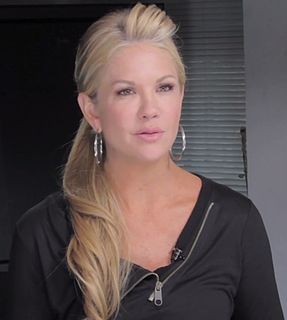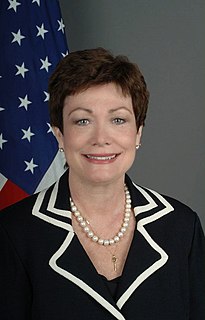A Quote by Petra Nemcova
We cannot stop natural disasters but we can arm ourselves with knowledge: so many lives wouldn't have to be lost if there was enough disaster preparedness.
Related Quotes
How impossible it is for us to imagine ourselves victims of disaster. We suffer for the poor people who were thrown into the sea from their cruise ship off the coast of Tuscany, some losing their lives. Imagine a world of accelerating natural disasters, one after the other so that nobody can help anyone else.
As a country with experience of coping with earthquakes, tsunamis and other natural disasters, Japan believes in emphasizing the mainstreaming of disaster risk reduction. We therefore prioritize investment in disaster prevention and post-disaster improvements under a policy of Build Back Better (BBB).
I do a lot of work with the Red Cross, too. As a reporter, before I went to entertainment news, I tended to follow natural disasters. I went to Charleston, South Carolina, after Hurricane Hugo. I went to Miami the year after they were recovering from Hurricane Andrew. I came to California when they were recovering from a big earthquake. I've seen the Red Cross and how they stay there years after a natural disaster. They're not just there when a disaster is happening.
Every woman who has had experience with sexual violence of any kind has not just pain, and not just hurt, but has knowledge. Knowledge of male supremacy. Knowledge of what it is. Knowledge of what it feels like. And can begin to think strategically about how to stop it. We are living under a reign of terror. Now what I want to say is that I want us to stop accepting that that's normal. And the only way that we can stop accepting that that's normal is if we refuse to have amnesia everyday of our lives.
This is part of the involuntary bargain we make with the world just by being alive. We get to experiences the splendor of nature, the beauty of art, the balm of love and the sheer joy of existence, always with the knowledge that illness, injury, natural disaster, or pure evil can end it in an instant for ourselves or someone we love.
The problem is that every study I'm aware of, which is probably not that many, has indicated that a dollar spent in preparation and avoidance of natural disasters is worth $15 that is spent in relief. But there's no political payoff for preparation. So, who benefits? I mean, the governor or senator or the president? Bill Clinton at Oklahoma City, his performance there helped him enormously. And there really hasn't been any regulation that would, in fact, interfere with environmental disaster.










































